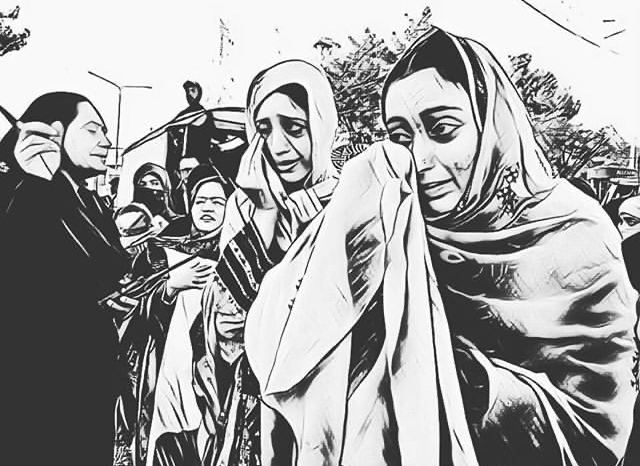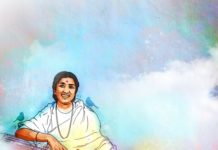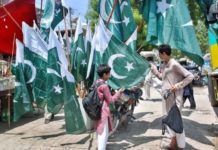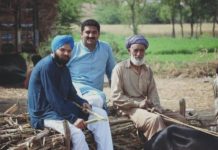The people of Balochistan have always been playing into the hands of the Sardars, is a well-known phrase that has been repeated and glorified by the ruling forces of the country to such an extent that it is now entrenched in the minds of ordinary people outside Balochistan. It has happened that even if a highly educated person introduces himself as Baloch in a packed gathering, he is looked upon with compassionate eyes as if he were a man of the cave. For all its animosity and enlightenment, it is difficult for an ordinary Baloch to remove this impression from the mind of an ordinary non-Baloch.
If tribal attitudes are interpreted in a specific sense, then in a way the whole of Pakistan deserves to be called tribal. Especially in today’s new generation of social media, all the elements of hereditary tribalism are equally present. And the whole system of the state elite of Pakistan seems to be a reflection of a tribal system, where the only individual ‘Sardar Sahib’ has the common sense, no ‘no’ can be said on any of his decisions. Give your command to whomever you want, no one can lift a finger. Perhaps that is why even in Balochistan, these same hereditary chiefs oppress masses more and more, because for a long time they have left all the reins in their hands.
If the Baloch are ridiculed for their slavery to the Sardars and the tribal system, then there are some legitimate reasons for it. One is that slavery is not in the nature of a common man and not in the nature of Baloch as well. Secondly, the form of this ancient traditional tribal system has not remained the same as it is today, but has been the exact opposite. It has been an integrated code of social law in ancient times. Under this, the dignitaries of the tribes used to choose an Ameer, who was called a Sardar. There were certain conditions for the selection of the chief; Just as a chief must be respected, in society as a whole, capable, ‘honest and trustworthy’, sincere, loyal, benevolent to the tribe and the nation, most importantly that must not have private property. Whoever was elected Sardar, even if he had private land, it was given to the common property of the tribes, while the responsibility of sponsoring the newly elected Sardar was on the heads of the tribes. Also, no one was allowed to present himself as a leader on his own, but the tribal elders would choose him in consultation. And these dignitaries were chosen by the people directly from the sub-branches of the tribes, in view of their experience and character. In the event of the death of the chief, a new chief would be elected in the same manner. No relatives of the Sardar were allowed to take the throne.
Historical evidence shows that the tradition of hereditary chieftaincy in the region was instilled by the British. Just as it is easier for the imperialists to talk to a dictator than to a democratic government, the democratic government has to make every decision through parliament, and there is a danger of appearing before the people, while the dictator is an individual. What happens is that he is not accountable to anyone, so he is immediately willing to fulfill every wish of imperialists for his own self-interest. This is exactly the case with the traditional tribal system and hereditary chieftaincy. It is necessary for the powerful forces hostile towards the people to seize their wisdom, so they attack the people’s forces first. In this, every enemy is eager to support them. This is what the enemies of the people have always done in the history of the world. This is what has been happening in the history of Balochistan at the hands of the anti-people forces.
In Balochistan, due to the availability of natural resources, the first access to knowledge was given to the upper class, so the foundation of public awareness was also laid by a Nawabzada in the region. Look at the demonstration of patriarchy there. The dictators had all the hereditary chiefs, Nawab etc, but as soon as anyone spoke in the public interest, he was declared a traitor. From Yousuf Aziz, who laid the foundation of public consciousness politics in the region during the British rule, to Akbar Bugti, Pakistan’s defense minister, you will see the same continuity. Lower and middle class educated early Balochistan politicians like Ghous Bakhsh Bizenjo, Muhammad Hussain Agha, Gul Khan Naseer, Abdul Karim Shorash, Abdul Rehman Kurd were put in jails, Khans and Sardars were put on the throne of power. The people’s democratic temperament of the Baloch can be gauged from the fact that even before the formation of Pakistan, the fledgling Kalat State National Party won 42 out of 50 seats in the lower house of the Kalat State. It was a testament to the fact that the Baloch people were in favor of public politics, not hereditary chieftaincy. Khan of Kalat and his followers banned this first Baloch representative political party. Later in Pakistan, when the same party emerged in the form of the National Awami Party, it was banned by feudal lords like Bhutto who called themselves progressive and socialist. Bhutto abolished the first representative people’s government of Balochistan and appointed a Nawab the governor of Balochistan. By announcing the end of Sardari in Balochistan, Bhutto continued to strengthen the Waderas in Sindh.
After the abolition of NEP, people’s democratic politics was never allowed to emerge in Balochistan. The progressive pro-people forces here have been working in public against these traditional chiefs for years, putting their lives and property in jeopardy, but the authorities, as a result of a single move, have strengthened them by making them heroes. This game of snakes and ladders has been going on for thirty, forty years. After Bhutto, General Zia’s ‘lost’ era was conducive only to undemocratic forces. Benazir Bhutto and Nawaz Sharif also continued to strengthen these Sardars in their short periods. Musharraf also said that 72 Sardars of Balochistan are with him, only three Sardars are spreading insurgency. Akbar Bugti, one of the three, was ‘good’ as long as he took the royalty of the gas coming out of the needle and put it in his bank account. He was eligible to become the governor and even the chief minister. But when he spoke of handing over all the resources to the province and the people of the province, only then he was declared a traitor and was brutally killed. The second Sardar Mengal, as long as he was ‘quiet’, his son was the Chief Minister of this province, when he also opened his mouth and started talking about the public issues of Balochistan, he became unpopular. That in the last ‘transparent election’ he and his party were completely cornered. The third one has been buried under the darkness of soil for a long time now.
The people of Pakistan and especially the democratic forces now need to realize that the supporters of the hereditary chieftaincy system are not the masses but the powerful forces who do not want to see the people’s forces as powerful. They are well aware that if these forces are powerful then they will demand what is in public’s interest and the public interest has always been against the interest of the powerful. So, even if 90% of the current assembly of Balochistan consists of Sardars, it is not the fault of the people that the whole world has testified that the turnout in the last elections in Balochistan was only 5%. Although these leaders in Parliament represent only 5% of the people, 95% of the people did not vote for them. If any institution of Pakistan could show moral courage and bring out the opinion of 95% of the people of Balochistan, then the names and symbols of those chiefs would not remain in Balochistan.








